Covid: Bishop calls for Christmas Day 'truce'
- Published
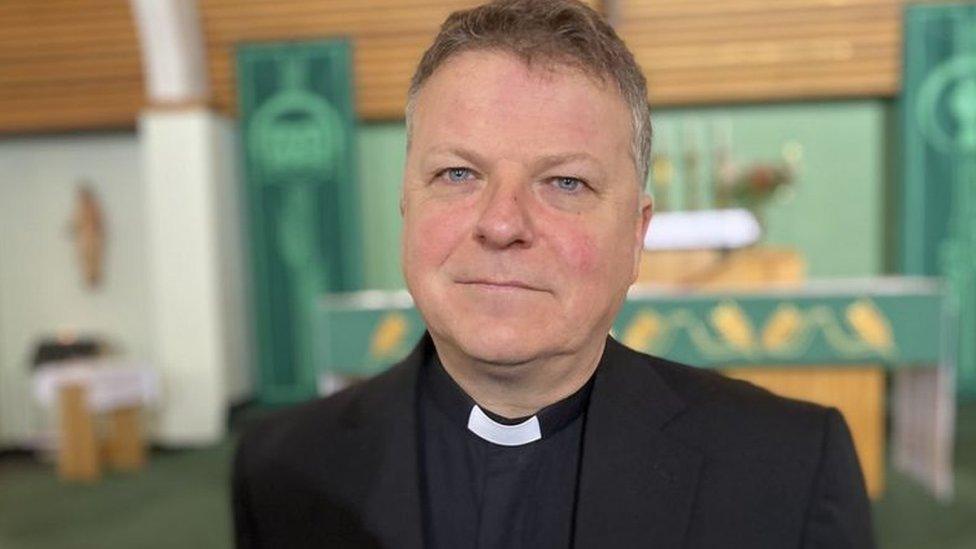
Bishop John Keenan said strict restrictions on Christmas gatherings ran "the risk of destroying all hope"
The Bishop of Paisley has called for a 24-hour "circuit breaker" to be put in place on Christmas Day, amid warnings of a "digital Christmas".
In the Sunday Times, external, John Keenan compared the idea to the Christmas Day truce during World War One.
National clinical director Jason Leitch had warned people to prepare for a "digital Christmas" due to the prevalence of Covid-19 in Scotland.
He has since said he hoped there could be "some kind of family Christmas".
The Scottish government said it could not predict Christmas restrictions but continued to be guided by the latest available scientific and clinical evidence.
Bishop Keenan, who also serves as the vice president of the Bishops' Conference of Scotland, said strict restrictions on Christmas gatherings ran "the risk of destroying all hope".
While he conceded that Prof Leitch was trying to manage expectations, Bishop Keenan wrote: "No one wants a digital Christmas.
"Squashing false expectations is one thing, but no one wants to dampen people's hopes."
He added: "Perhaps we should consider a Christmas 'circuit-breaker'. A 24-hour lifting of restrictions on gatherings and celebrations, a break in the war on Covid, just like the pause in the First World War on the Western Front in 1914, when the British and German troops laid down their guns and met in no man's land to celebrate Christmas."
He added: "Couldn't we allow for one day of normality in the midst of our relentless war against the virus?
"Think of the hope and happiness that would give. A moment of joy in the midst of so much despair."
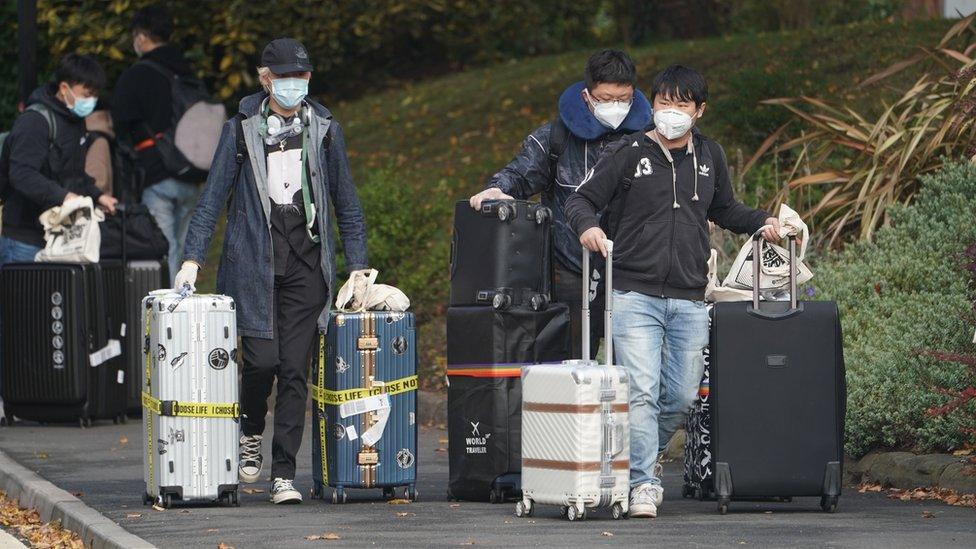
The Scottish government is working with the rest of the UK nations to manage the movement of students at Christmas
The bishop also said that "great care" would have to be taken to protect the vulnerable and the elderly, but raised the risk of "emptiness, loneliness and hopelessness at what should be the happiest time of year".
He added: "The effects of a depressed and isolated Christmas could be devastating for many, leaving an emotional and social legacy that no vaccine could cure.
"Flattening the curve of infection rates has been a laudable goal of government policy this year. Rather than flatten the curve of hope, let's lift our spirits with the prospect of a merry Christmas and happy new year."
'Some kind of family Christmas'
Scotland's deputy chief medical officer Nicola Steedman said the problem with the bishop's idea was that "our opponent hasn't agreed to the amnesty".
She told BBC Scotland's Seven Days programme: "This is not something that Covid has signed up to and said, yes I'll stop infecting people on Christmas Day and you can all just go about your business."
On Saturday, Prof Leitch said his comments about a "digital Christmas" may have been too harsh but he was trying to be realistic and to encourage people that "what we do now matters for eight weeks from now".
"Realistic looks like some kind of family Christmas but it will depend how well we get the numbers down," he said.
"I could have perhaps been gentler in my use of the phrase digital Christmas but I just mean you won't be flying to visit relatives probably, you may not have large multi-household gatherings in your home. You won't be having six families but you may well be allowed to have two or three families if that is allowed.
"Nobody can cancel Christmas, not even the national clinical director for Scotland. It's happening, it is just to make it as safe as we possibly can."
'Not possible to predict'
A statement from the Scottish government said: "Decisions on whether to introduce additional protective measures will continue to be guided by the latest available scientific and clinical evidence and informed by a balanced 'four harms' assessment.
"We understand that people will naturally be anxious about whether they will be able to visit relatives over the festive period.
"The new levels approach we announced this week, if approved by the Scottish Parliament, will enable us to adapt our response to coronavirus more effectively. The more we do now to supress transmission of the virus, the more likely we will have fewer restrictions in place at Christmas.
"However, given the rapidly changing nature of the pandemic it is simply not possible to predict at this stage what restrictions may or may not be required over the Christmas and New Year holiday period."
Deputy First Minister John Swinney has said the Scottish government is doing everything it can to get students home for Christmas.
He said the four nations were trying to co-ordinate the mass movement of students to reduce the risk of spreading Covid-19. This could include staggering students' returning to their family homes.
And he said he recognised the importance of family and community occasions but that suppressing the virus was paramount.


- Published25 October 2020
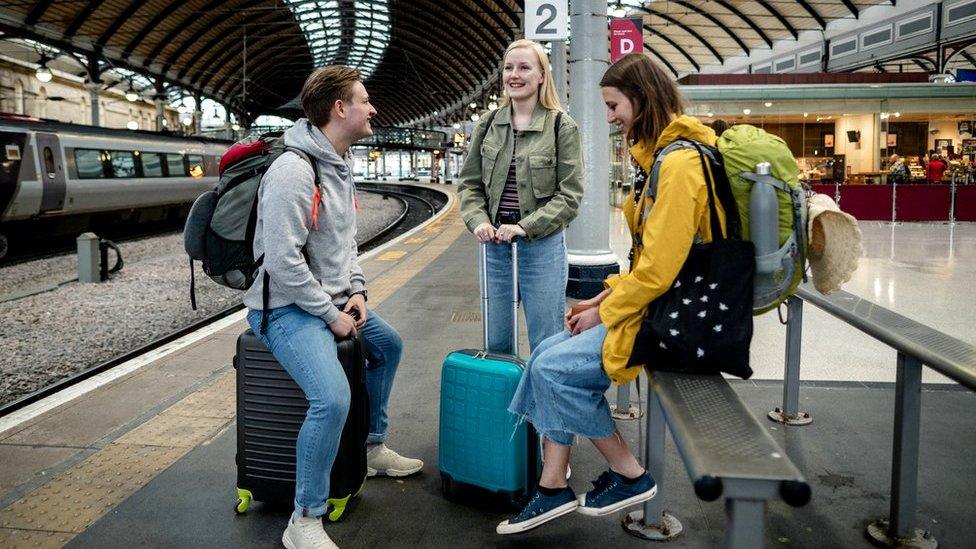
- Published24 October 2020
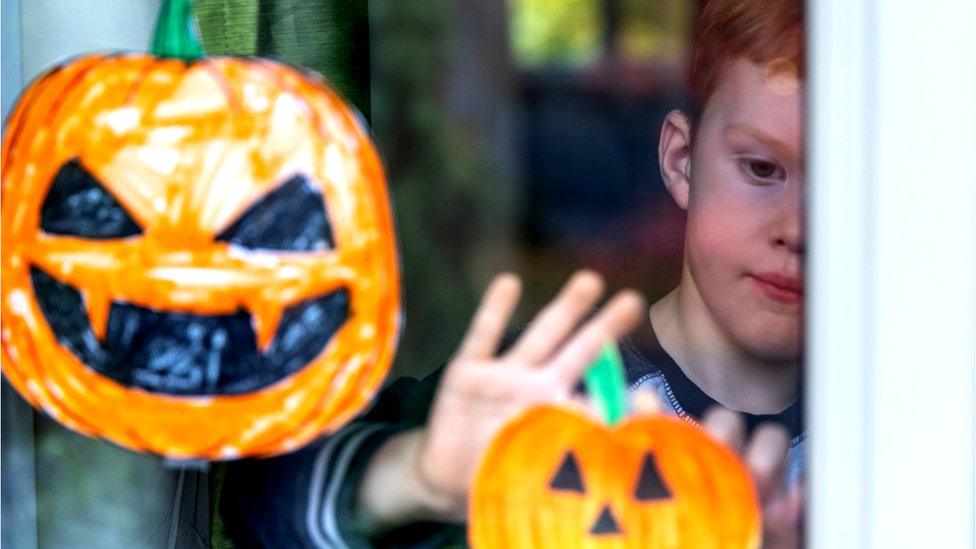
- Published8 December 2020
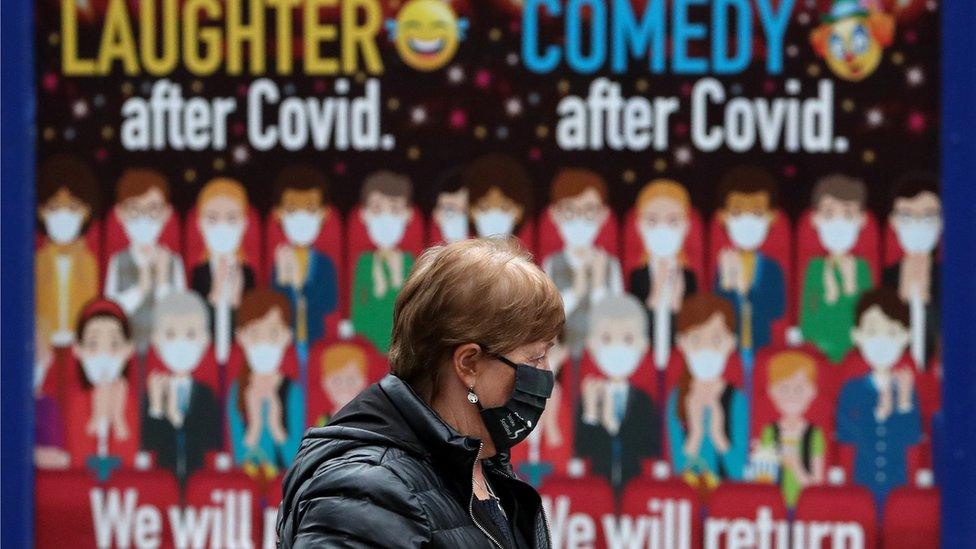
- Published22 October 2020
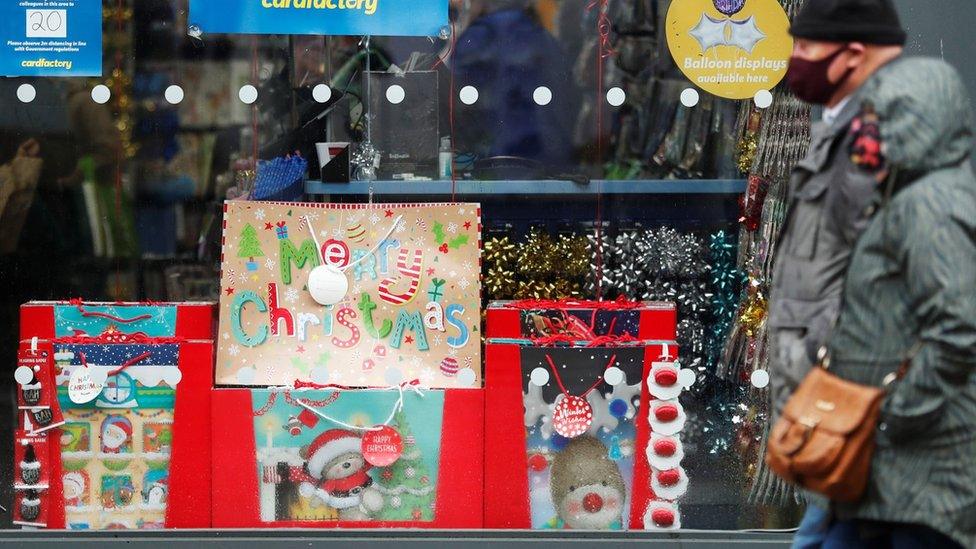
- Published16 October 2020